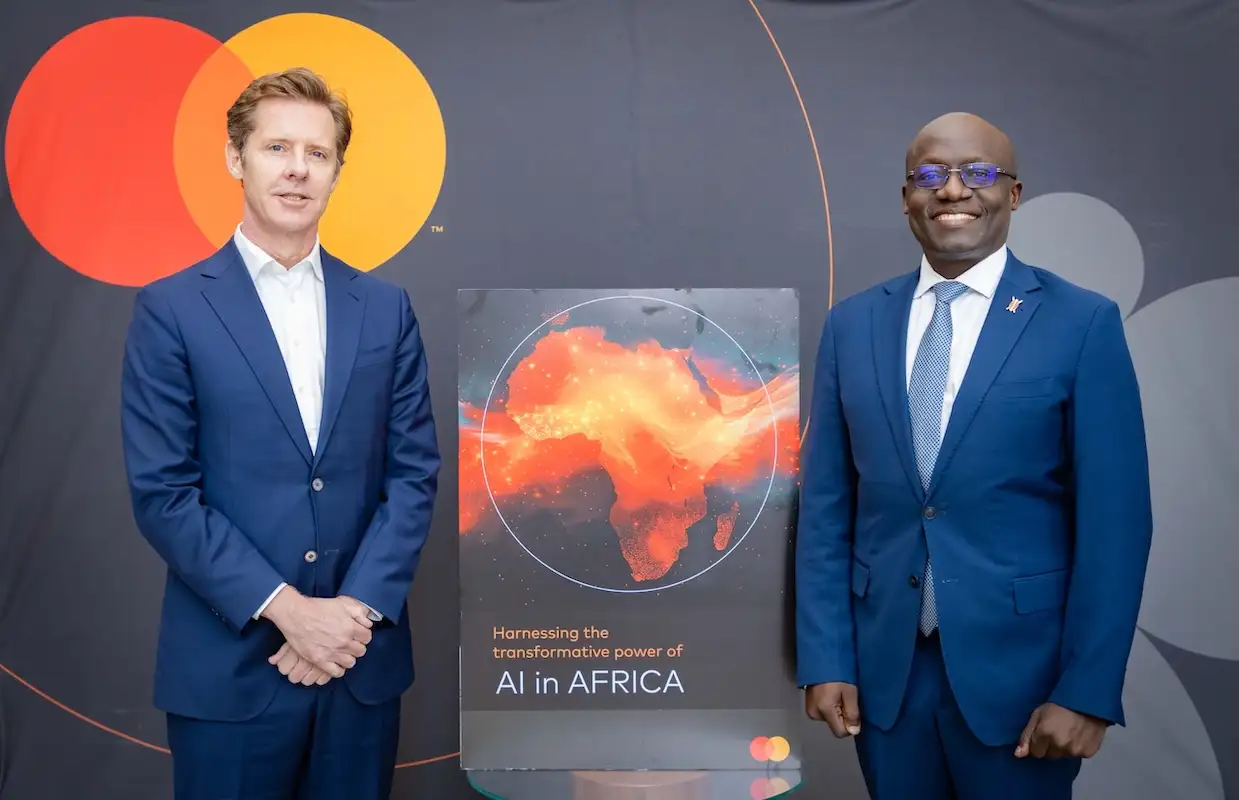Africa’s artificial intelligence (AI) market is expected to grow to USD 16.5 billion by 2030 from from USD 4.5 billion in 2025. These figures have been pulled from Mastercard’s latest whitepaper, Harnessing the Transformative Power of AI in Africa. The study spotlights Kenya, South Africa, Nigeria, and Morocco highlighting the potential of AI to drive financial inclusion, create jobs and innovation.
But beyond the headline projections, Mastercard says it is already embedding AI into real-world solutions in Kenya from alternative credit scoring to agricultural tech and digital skills training. Speaking to TechArena, Mark Elliott, Division President, Africa at Mastercard, detailed the company’s role in Kenya’s AI journey.
Partnering on Kenya’s AI roadmap
While Mastercard has no formal advisory role in Kenya’s National AI Strategy (2025–2030), the company is actively engaging with government agencies and regulators to share global best practices and technical expertise.
“The launch of our whitepaper was one way we’ve contributed to the dialogue, spotlighting Kenya as a frontrunner in AI innovation on the continent,” Elliott said. “From mobile-credit platforms like Tala to health-focused AI tools like Jacaranda Health’s UlizaLlama chatbot, Kenya is showing how policy, technology, and community needs can align. These are the kinds of innovations we want to continue supporting not just with words, but with practical tools, programs, and partnerships.”
AI for inclusion, agriculture, and everyday services
Through its Start Path and Fintech Express programs, Mastercard supports startups in Kenya and beyond in integrating AI into their products. Elliott points to Hello Tractor as a standout example, a platform that uses AI and IoT to connect tractor owners with smallholder farmers. This system works to optimize tractor rentals. It has so far serviced over 500,000 farmers in 13 countries including Kenya.
Another initiative, Community Pass, aims to bring underserved communities into the digital economy. Across Kenya, Ethiopia, Tanzania, Uganda, and India, 7 million people have registered on the platform. “We believe there is an opportunity to integrate AI into Community Pass where it can drive real value, always guided by local insights and needs,” Elliott said.
Short-term Goals
Mastercard sees immediate opportunities for AI to expand financial inclusion within the next two years, well before the 2030 horizon.
“One clear opportunity lies in AI-powered credit scoring,” Elliott explained. “By analysing alternative data from mobile transactions or savings patterns, AI can unlock access to credit for millions of Kenyans who lack traditional credit history.”
The company is also deploying AI in fraud detection, securing over 159 billion transactions annually and preventing billions of dollars in fraud losses. Personalization using conversational AI to deliver tailored financial product recommendations that can mimic in-store interactions is another promising area.
Investing in talent
Elliott also added that the long term success of AI in Africa depends on local talent. In Kenya, Mastercard partners with organizations like MESH, which connects small businesses to digital tools, and Hatua.net, which equips youth with digital skills, mentorship, and career development.
“Our latest whitepaper calls for collective investment in AI skills development, including training and public-private partnerships,” Elliott said. “It’s not something one organization can do alone and we need an ecosystem-wide commitment to prepare Africa’s workforce for the AI-driven economy.”
Kenya’s AI momentum which is underpinned by its new national strategy is drawing global players into the ecosystem. Mastercard’s focus on agriculture, financial access and digital skills suggests a more practical, partnership-driven approach to AI adoption on the continent.
For these and more stories, follow us on X (Formerly Twitter), Facebook, LinkedIn and Telegram. You can also send us tips or reach out at [email protected].
Also Read: Artificial intelligence (AI) could create a turning point for financial inclusion in Africa



